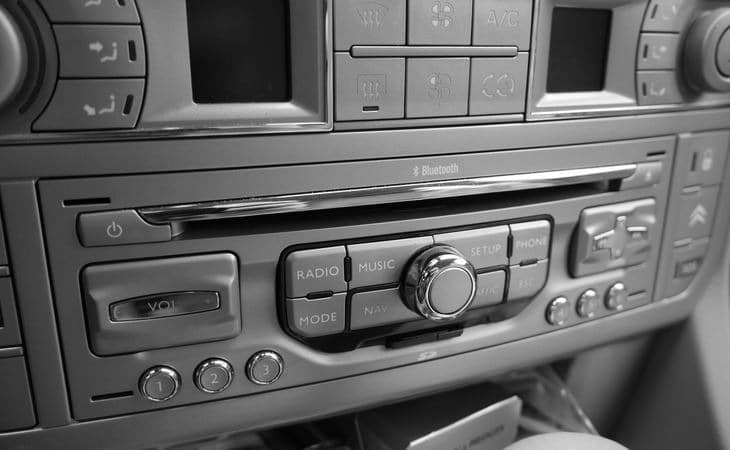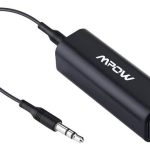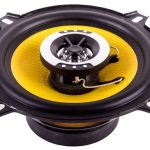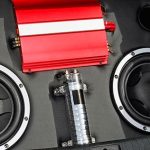A car audio system works perfectly when everything is properly wired. One of the most important things to do is to ensure the car audio is properly ground. Grounding is typically done from the amplifier. The amplifier works as the heart of a car audio system. It feeds the speakers, tweeters, and subwoofer with the power they need for the best sound output.
If the amplifier starts acting up, you may find it a little challenging to know the source of the problem. Fortunately, you can use the symptoms that the car audio presents to know the exact problem. One of the main causes of an amplifier that’s acting up is bad ground.
It’ll help to know how the car audio and amp behave when poorly ground. That way, you can narrow down the issue to fix it more quickly and easily. Here’re the most common symptoms of a bad ground car audio and how to fix them.
1. Cutting in and out
If the amp is cutting in and out randomly or restarting itself while the engine is still running, it’s likely that it’s poorly ground. A loose or broken ground wire means that the grounding is connecting on and off, thereby making the amplifier cut in and out repeatedly.
If you notice your car amp behaving this way, you need to check all the connections to ensure they’re tight. Ensure the grounding is tightly secured in place. If it’s broken, install a new grounding wire and check whether the problem is solved.
2. Clipping
Clipping is a type of distortion. It happens whenever more power is demanded from an amplifier than what it can output. One of the main causes of clipping is poor grounding. If you drive the amp beyond its power output, it’ll fail to amplify an incoming audio signal properly. Consequently, the output signal gets distorted.
Clipping destroys the quality of sound. Also, excessive clipping can damage the speakers. The reason behind this is that a clipping audio signal causes the voice coil to overheat. Consequently, the voice coil may burn out.
If your amp is clipping, make sure it’s properly ground. Check the grounding connection to make sure it’s tight and complete. Then check whether the clipping issue is eliminated.
3. Failure to turn on
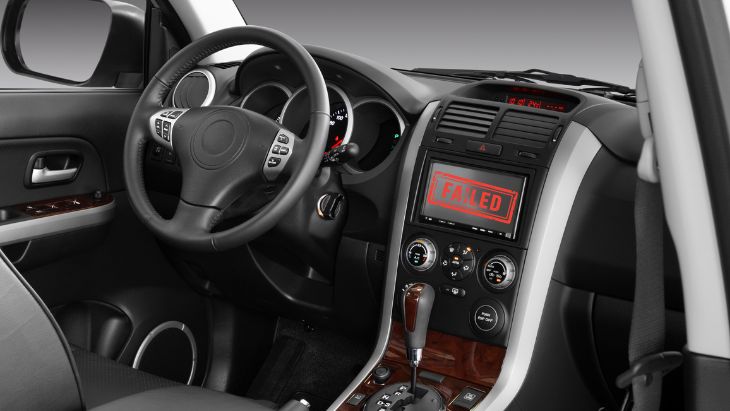
If the amplifier is failing to turn on, then you’re likely having an issue with bad ground car audio. Essentially, grounding completes the electric circuit that powers the amp. If there’s a problem with the grounding, the amplifier may fail to turn on.
You should ensure the amp is grounded with thick wire to handle the large amount of current it draws from the battery. Using a thin grounding wire might make the amp fail to turn on. Also, bad grounding won’t complete the circuit such that the amp won’t turn on.
4. Overheating
Whenever the amplifier grounding is done with a very thin wire, the amplifier will overheat. As a result, it’ll go into a thermal shutdown. It can also overheat when using thin power cables. Ensure that the ground cable is thick and of the same size as the power cable.
Also, the ground cable should be hooked to a section of the chassis that’s not painted. The section it’s hooked should be sanded for a tight connection. Additionally, you shouldn’t drive an amplifier beyond its limits. Using it to drive speakers that require more power than it can provide will overwork it and cause overheating.
It’s also important to ensure the amplifier is installed in an area where there’s sufficient air circulation around it. Installing it in a tightly closed and confined space will only worsen the situation and make it overheat further.
When shopping for a car amplifier, consider a high-quality model that has a cooling mechanism such as a fan. The cooling mechanism will assist in dissipating heat from the interior components. Amps with poor build quality tend to overheat easily due to the lack of a cooling mechanism and wasting more current than they produce.
5. Whining noise
There are several reasons why your car audio system might produce a whining noise. One of the most common causes of whining noise in car audio is poor grounding. You should check whether the amp is properly grounded.
Also, the metallic amp enclosure should be properly insulated to ensure there’s no current that flows into the amp from the car frame. It’ll also help to ensure the ground wire is no longer than 18 inches. A longer ground wire may cause noise interference.
6. Burning smell
Another symptom of a bad ground car audio is a burning smell. If the burning smell is coming from the amplifier, you’re likely dealing with poor grounding that’s melting or burning. A loose or faulty ground connection may generate heat, thereby causing a burning smell. Ensure the grounding is properly secured in place. Tighten any loose grounding connection.
7. Weak sound output
If the car audio is outputting weaker sound than normal, it’s likely that the amplifier is outputting less power than what it normally does. The reason behind this might be a bad ground connection. Hence, the ground wire isn’t feeding the amp with enough power to perform to its full potential. Ensure the ground wire is tightly connected in place. Also, ensure the ground wire doesn’t have any cuts along its length.
8. Constantly going into protection mode
Most top-quality car amps have a protect mode feature. It protects the amp from damage whenever there’s a problem with its functionality. Amps that have a protect mode feature typically have an indicator that lets you know it has gone into protect mode. If it goes into protect mode, check whether there’s a problem with the amp grounding.
Tips for Grounding Your Car Audio Properly
Tip #1- Get the best grounding point
The first step should be getting the best grounding point. Ensure the grounding point is not more than 18 inches away from the amplifier. A shorter distance between the grounding point and the amp allows for the best grounding connection.
Preferably, attach the grounding wire directly to a sanded part of the metallic chassis with the help of a screw. If there’s no grounding port near the amp, drill a hole in the chassis.
Tip #2- Use thick grounding wire
The grounding wire should be thick enough to allow the amount of current the amp needs to pass through it. A thin grounding wire can cause overheating issues. The grounding wire should be as straight as possible without coiling for the shortest length possible. Thus, cut the wire to the shortest length possible.
Tip #3- Secure the wire tightly
Strip the ends of the wire. Attach one end to the amplifier ground port. Connect the other end to the grounding point. Ensure both endpoints are tightly connected in place for the best grounding.
Final Words
There are several symptoms of a bad ground car audio. If your car audio is not properly grounded or there’s a fault with the grounding, you’ll experience several problems, especially with the amplifier. Ensure you deal with any symptom soonest possible before it causes worse damage such as a damaged amplifier. If the car amp gets damaged, you may have to invest in a new one, something which might not be in your budget at the moment.
Michael Evanchuk is a San Francisco-based sound engineer with 20 years’ experience installing, troubleshooting, and repairing commercial, automotive, and household sound equipment. Evanchuk owns an auto stereo center, where he offers highly competitive car audio installation and repair services. He has written dozens of articles on different sound engineering topics, all of which have been published in leading journals, blogs, and websites.

